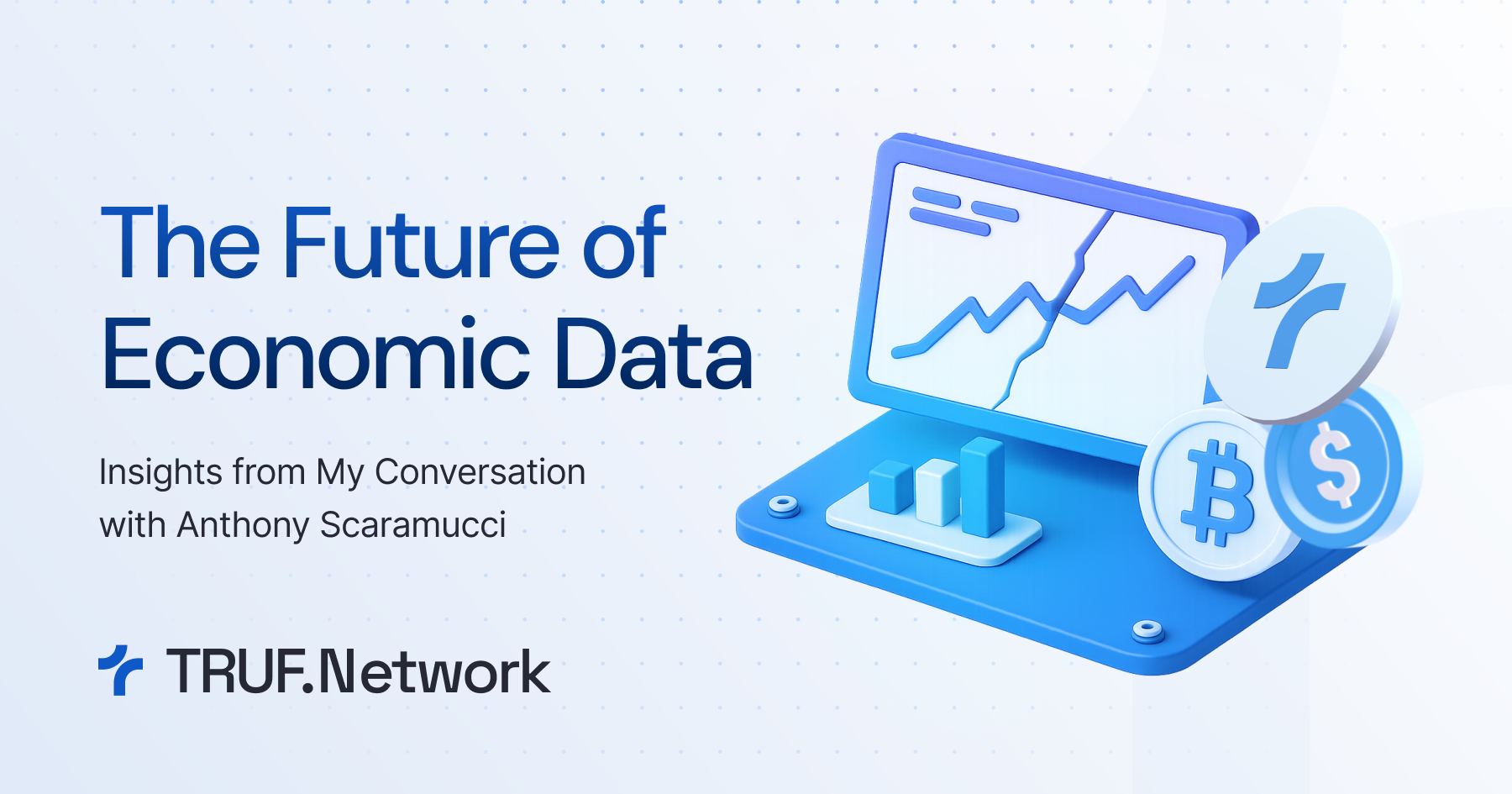Anthony Scaramucci: The Future of Economic Data
We discuss with Anthony Scaramucci how blockchain can revolutionize economic data, enhance accuracy, and empower individuals and institutions alike.

🎙️ Revolutionizing Economic Data: A Conversation with Anthony Scaramucci
In today’s rapidly evolving economic landscape, the reliability of data is more critical than ever. With misinformation becoming widespread, individuals and businesses require accurate information to make informed decisions. In a recent podcast episode, I had an enlightening discussion with Anthony Scaramucci about the transformative power of blockchain technology in enhancing the quality of economic data.
🏛️ The Bureau of Lagging Statistics
Traditional economic metrics often fall short in providing timely and relevant insights. I previously referred to government statistics as the “Bureau of Lying Statistics,” but I have now better described them as the “Bureau of Lagging Statistics.” This change emphasizes how conventional indicators frequently fail to reflect the dynamic nature of our economy effectively.
⚠️ The Challenges with Traditional Economic Data
- Delayed Insights: Governmental reports often come weeks or months after significant economic shifts.
- Inherent Biases: Economic data can be manipulated or misrepresented, leading to misleading interpretations.
- Inefficient Data Access: The centralized nature of traditional sources can limit accessibility for everyday users.
🔗 Blockchain as a Solution
Anthony highlighted the shortcomings of central banking systems, metaphorically stating that they are “drunk driving with the money.” In contrast, the blockchain community is working to reclaim control by providing decentralized and transparent access to real-time economic data.
🌐 Benefits of Blockchain for Economic Data
- Decentralization: Information can be accessed without reliance on a single authority.
- Transparency: Users can verify data in real-time, fostering trust.
- Real-Time Updates: Blockchain technology facilitates instantaneous updates on economic indicators, ensuring users always have access to the latest data.
💸 The Rise of Stablecoins
Our conversation also delved into the exponential growth potential of stablecoins. I foresee the stablecoin market evolving into a $2 trillion industry as banks and financial institutions embrace issuing their own digital currencies. This shift promises to enhance the liquidity and efficiency of the global economy.
🏦 Why Stablecoins Matter
- Enhanced Liquidity: Stablecoins provide a more stable medium for transactions.
- Global Adoption: Financial institutions are increasingly integrating stablecoins into their operations.
- Innovation Catalyst: The rise of stablecoins may drive innovation in financial products and services.
🎯 The Importance of Accurate Data
A key takeaway from our discussion was the significant disparity between accurate data and the often-lagging data used by governments for policy decisions. Blockchain technology presents a powerful opportunity to bridge this gap, allowing better-informed policy-making that can directly benefit businesses and individuals.
🔓 Unlocking Better Outcomes through Accurate Data
- Improved Policy Decisions: Policymakers can base decisions on real-time, accurate data, leading to more effective governance.
- Informed Business Strategies: Companies can leverage timely insights to adapt quickly to economic changes.
- Empowerment for Individuals: Everyday consumers gain better tools to navigate financial decisions.
Conclusion: Embracing the Future of Economic Data
As we navigate this transformative era, embracing innovative solutions and new technologies is vital to ensure access to accurate economic data. The future of economic data is indeed promising, fueled by blockchain technology and its potential to revolutionize how we understand and utilize financial information.
For continuous insights and exploration at the intersection of blockchain technology and economic data, stay connected!
Short Reel: https://youtube.com/shorts/toaSpR97Eps


